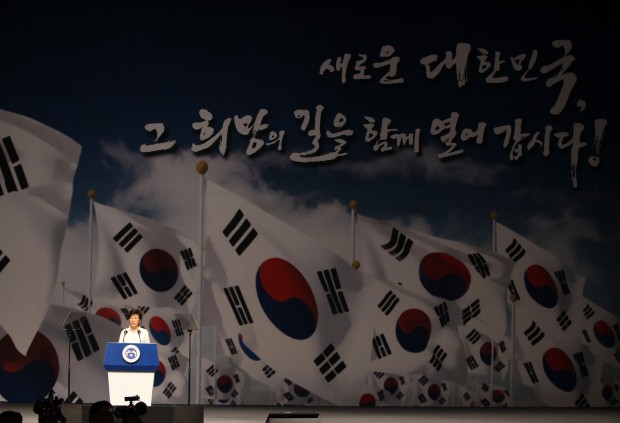Sex slavery talks between Korean, Japan likely to continue into 2016

South Korean President Park Geun-hye speaks during a ceremony marking the 69th anniversary of the Korean peninsula’s liberation from Japan’s 35-year colonial rule in Seoul, South Korea, Aug. 15, 2014.
(Xinhua/Park Jin-hee)
Negotiations between Korea and Japan over Tokyo’s sexual enslavement of Korean women during World War II are likely to drag on into next year.
Japan’s Foreign Minister Fumio Kishida said he was skeptical about striking a deal with Korea over the issue by the end of this year, Japan’s Nihon Keizai Shimbun reported Wednesday.
“Negotiations are still ongoing and nothing has been decided yet although it’s certain we’re putting efforts in line with a bilateral summit,” Kishida was quoted as saying.
President Park Geun-hye and Japanese Prime Minister Shinzo Abe agreed at their summit in Seoul on Nov. 2 to accelerate the ongoing negotiations and conclude a deal by the end of this year.
This year marks the 50th anniversary of the restoration of diplomatic relations between the two neighbors.
Abe also ordered his aides to speed up the process for an early finalization, according to diplomatic sources.
The two neighbors have held 10 rounds of talks at the director-general level since April 2014 to narrow their differences over Tokyo’s state-perpetrated crimes.
Kishida said bilateral dialogues at any levels are possible, including his meeting with Foreign Minister Yun Byung-se, to settle the thorny issue.
Korea has demanded that Japan sincerely apologize to the victims of sex slavery and address its legal liabilities in making compensation to the surviving victims.
Japan instead claims that all colonial-era issues between Seoul and Tokyo were completely resolved under the bilateral treaty in 1965.
(This post first appeared on The Korea Times)
























































